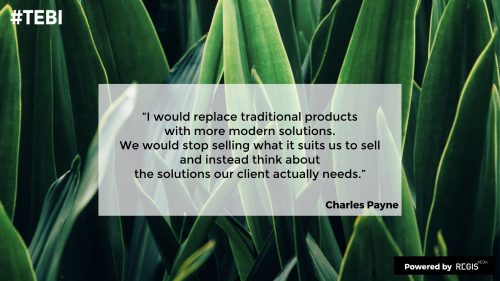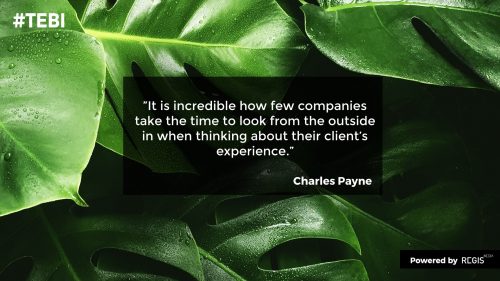We ran an interview last month with Charles Payne. Charles has worked in the UK fund management industry since the early 1980s. Over the years, it’s fair to say, he became quite disillusioned with active management. Last year a left a very senior, director-level post at Fidelity and is now self-employed.
If you haven’t read the interview, I urge you to do so. It provides a fascinating insight into the fund industry, and the City of London generally, from a highly intelligent, principled and discerning insider.
This article is a follow-up to that interview, in which Charles gives his opinion on the growth of passive investing, and also presents a 10-point plan for reforming active fund management.
Charles, how do you view the growth of low-cost investing and its implications for active management?
Low-cost investing is like the atom bomb — once it’s been invented, it’s impossible to uninvent it. But low-cost investing is emphatically not the same as passive. A substantial minority of Vanguard’s business, for example, is actively managed by third-party managers; what Vanguard do differently is they negotiate low institutional fee levels, and then pass these on to their mutual clients with as little friction as possible.
So you’re not as bearish as some commentators are about active management in general?
No, I’m not. Despite the doom mongers, the rise of passive does not mean the end of active management — not least because as Jack Bogle frequently reminds us, for price takers to exist, there must always be enough price discoverers in the market.
OK, most of agree that you can’t get rid of active managers altogether. But clearly, the current model is broken. What’s the answer?
Well, faced with this challenge from passive investing, the traditional active houses have a clear choice to make. Do they fundamentally rethink their proposition to their clients, accept an inevitable reduction in margins, and create appropriately priced solutions rather than expensively priced products? Or do they continue to charge as much as they can for their existing products for as long as they can, and accept that in ten years’ time their AUM will very possibly have halved in real terms?
Over the years you’ve worked with some of the biggest asset managers — Fidelity, Henderson, Gartmore, UBS, Kleinwort Benson and Chase Manhattan. How should those sorts of companies respond to the threat from indexing?
If I were responsible for the business strategy of a traditional active investment house today, what would I do? The following things would certainly be on my list.
1. I would review our existing active products for what I call their ‘Share Ratio’ — how much each of them have offered in terms of excess gross returns over the index, and how much of that gross return we have kept versus how much the client receives.
2. Where there are products that through time have rewarded us more than the client, I would cut costs to a level whereby the client makes more than we do.
3. Where there are products that have generated a negative return after fees, I would accept that we do not have the fundamental competence to run them, and stop managing them actively and instead convert them into third-party passive products.
4. I would replace traditional products with more modern solutions. We would stop selling what it suits us to sell, and instead think about the solutions our client actually needs.
5. It is often forgotten that we leave the largest part of a client’s return experience to them. In other words, we charge them a lot of money for the arguably simpler task of trying to beat an index for them only after they have decided on which asset class and geography they want to buy. I would create solutions that recognise this and offer multi-asset products that make appropriate use of passive building blocks and are more than simply ‘fees on fees’.
6. I would radically rethink expensive (and at best partially successful) research models that are entirely reliant on human capital, and instead recognise that both technology and human beings have different abilities and capabilities that need to be harnessed to try to generate more alpha.
7. I would identify areas of the market which are less open to disruption from passive products — illiquid asset classes, imperfectly researched mid- and small-cap areas of the market, and areas where investible indices simply don’t exist, such as venture capital, asset allocation, physical real estate, unlisted companies and so on.
8. I would attack costs hard by changing the shape of the company. Instead of the traditional monolith of trying to be all things to all people, I would create a structure based on a series of unconnected specialist alpha-seeking boutiques in areas where we have demonstrable investment competence.
9. I would service these boutiques with a central servicing core limited to those functions where ‘doing them yourself’ adds real hard cash value to either your client or the investment teams, or ideally both. Everything else I would outsource.
10. Finally, I would aggressively simplify how your clients can buy your solutions. As a test, I recently set up new online ISA accounts with two different providers. One took less than three minutes; one took 30. Despite what they say, it is incredible how few companies take the time to look from the outside in when thinking about their client’s experience.
Related post:
Charles Payne: Lessons learned from 35 years in the fund industry
Evidence-based adviser?
The Evidence-Based Investor is produced by Regis Media, a boutique provider of high-quality content and social media management for evidence-based advice firms. For more information about what we do, visit our website or YouTube channel.











